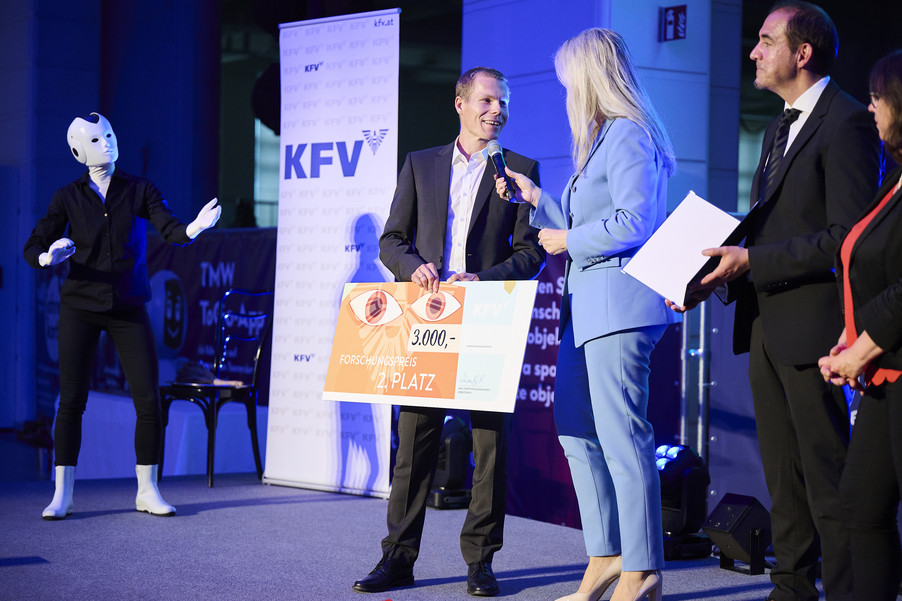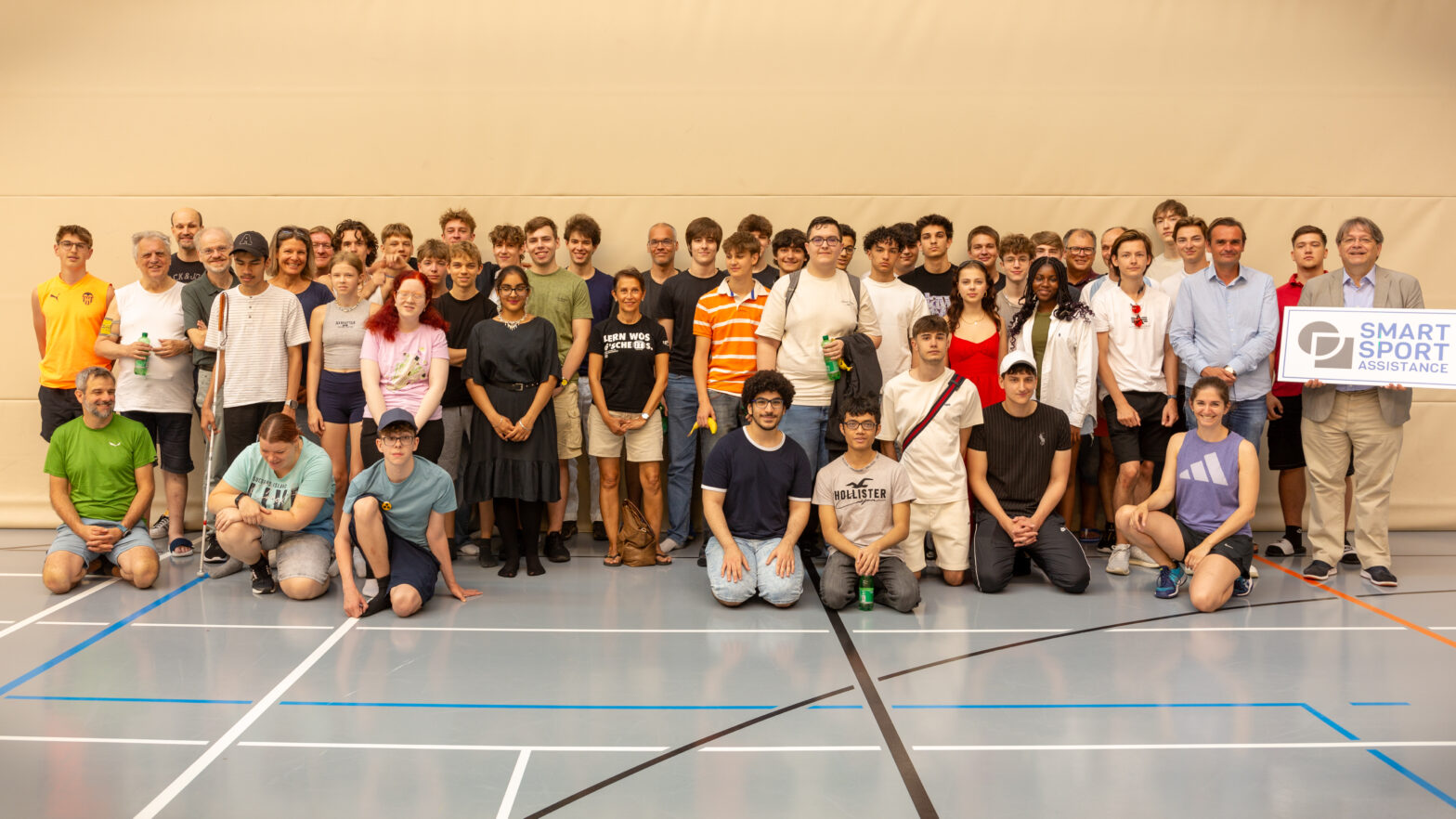Description of the assistance system: A camera on a tripod aligned horizontally to the edge of the pool recognises the swimmers using artificial intelligence (AI). When crossing a pre-defined distance to the edge of the pool, the swimmers receive auditory feedback via Bluetooth bone conduction headphones. The distance of this virtual line to the edge… Continue reading AI-based swim assistance system
Author: Gerald Steindl
Digital Bell Ball
Description of the project: In contrast to a conventional bell ball (i.e. a ball containing a bell for signalling), the digital bell ball developed can emit an acoustic signal even when the ball is stationary. The developed ball can also change its colour and sound frequency depending on the speed. This new development can be… Continue reading Digital Bell Ball
Award from the Austrian Road Safety Board
Project collaborator Gerald Steindl was honoured by the Austrian Road Safety Board for his research project “SWIM-ASSIST”. SWIM-ASSIST gives visually impaired/blind people fully autonomous auditory feedback as soon as they approach the edge of the pool while swimming. Technologically, this is realised using artificial intelligence and Bluetooth bone conduction headphones. The awards were given to… Continue reading Award from the Austrian Road Safety Board
End-of-school-year workshop
On 24 June 2024, one of our project workshops took place at the Institute of Sport & Exercise Science. The aim of the workshop was to thank the students and supervising teachers involved in the project for their help and to test some of the prototypes developed so far by letting everyone present at the… Continue reading End-of-school-year workshop
Sound of our digital bell ball – research topic July & August 2024
In contrast to a conventional bell ball (i.e. a ball containing a bell for signalling), the digital bell ball developed as part of our project can emit an acoustic piping signal at different audio frequencies. The research question that now arises: Which of the two audio frequencies listed do you consider pleasant? Audio 1: Audio… Continue reading Sound of our digital bell ball – research topic July & August 2024
Throwing games – research topic May & June 2024
As already mentioned in the May & June 2023 research topic, the technical adaptation of the bell ball is one of our development goals. The University of Vienna worked together with two HTL school classes to equip a bell ball with appropriate sensors and various information transmitters so that the ball still emits acoustic signals… Continue reading Throwing games – research topic May & June 2024
Assistance system for climbing sports – Research topic March & April 2024
Can people with blindness and/or visual impairments also climb? Yes, sighted people are often very surprised when they see people climbing even though they can’t see holds or rocks. The handles and steps are felt with the arm and foot in a semi-circle. This works very well. However, assistance can also be provided from below… Continue reading Assistance system for climbing sports – Research topic March & April 2024
Two awards in the UNIKATE ideas competition
The UNIKATE prize honours ideas for new technological developments that enable people with disabilities to have more self-determination, equal participation in society and thus live together as equals – inclusion in the sense of the UN Convention on the Rights of Persons with Disabilities. The prize is aimed at pupils and students with creative ideas… Continue reading Two awards in the UNIKATE ideas competition
Prototype presentation at the BBI
On 18 December 2023, one of our project workshops took place at the Institute for the Blind in Vienna. The aim of the workshop was to test the first prototypes of five projects from the higher technical colleges in which innovative Smart Sport Assistance solutions are being developed. These projects are led by the HTL… Continue reading Prototype presentation at the BBI
Dice games – research topic January & February 2024
For people without visual impairments, handling a conventional dice is no problem, but what do you do if you can’t see the number rolled or don’t know where the dice is in the room? A project group will soon be working on equipping a standard foam dice with loudspeakers and corresponding sensors so that pupils… Continue reading Dice games – research topic January & February 2024

